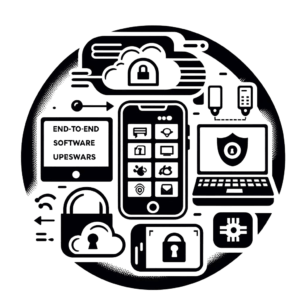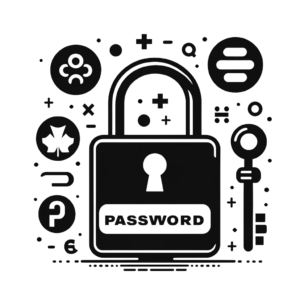The Importance of Securing Communication Channels
Securing communication channels is paramount in today’s digital landscape where cyber threats loom at every turn. Whether you are sharing sensitive information with colleagues, clients, or friends, ensuring the privacy and integrity of your communication is crucial to safeguarding your data and preventing unauthorized access. By implementing robust security measures, you can protect your emails, messages, and calls from interception, tampering, or eavesdropping by malicious actors.
One of the best ways to keep your messages safe is by using end-to-end encryption. This means that your messages are scrambled on your device and can only be unscrambled by the person you are sending them to. This way, even if someone tries to spy on your messages, they won’t be able to understand them.
In addition to using encryption, it’s important to keep your devices and apps updated, create strong passwords that are different for each account, and enable two-factor authentication. These steps can help protect your messages from hackers and other online threats.
Remember, secure communication is not just a matter of personal privacy; it is also essential for protecting sensitive business information, maintaining client trust, and complying with industry regulations. By prioritizing the security of your communication channels, you can mitigate the risks of cyber attacks and communicate confidently in today’s interconnected world.
Understanding Different Communication Channels
Understanding how different ways of communicating can be made secure is important. Channels like email, instant messaging, video calls, and phone calls are often used today. But each one has its own weaknesses that cyber attackers can use to access private information. Things like pretending to be someone else in emails, harmful software in attachments, listening in on calls, and reading instant messages are risks that could put your communication at risk.
Protecting your communication channels is crucial for ensuring the security of your organization’s sensitive information. This can be done by using encryption, secure communication tools, keeping your software and systems up to date, and educating your employees on how to stay safe online. By being aware of the risks and taking steps to prevent them, you can make sure that your data is safe and secure.
Data Encryption
Concept of Encryption and How it Works
Encryption is a crucial aspect of securing communication channels in the digital world. It involves the process of converting information into a code to prevent unauthorized access. The concept of encryption relies on algorithms that scramble data to make it unreadable to anyone without the proper decryption key. This ensures that sensitive information, such as passwords, financial transactions, and personal messages, remains secure during transmission over the internet.
There are two main ways to protect data: symmetric and asymmetric encryption. Symmetric encryption uses one key to protect and unlock the data, while asymmetric encryption uses a pair of keys – a public key to protect the data and a private key to unlock it. This two-key system adds extra protection, making it harder for cybercriminals to access and understand the information.
Using encryption protocols, such as SSL/TLS, in your online communication is important for keeping your data safe from snooping and cyber threats. By learning about encryption and how it protects information, people and businesses can make sure that their sensitive data stays private and secure online.
Tools for Encrypting Data
Keeping your messages and personal information safe from hackers is essential. In today’s technology-driven world, there are various user-friendly tools that can encrypt your data and guarantee its security.
Pretty Good Privacy (PGP) is a commonly used tool for keeping your emails secure. It uses special codes to make sure that only the person you’re sending the email to can read it.
Another valuable tool is VeraCrypt, a powerful open-source encryption software that can encrypt entire drives, partitions, or USB drives. VeraCrypt provides strong encryption algorithms to safeguard your data from potential threats.
For keeping your messages safe and private, apps like Signal and WhatsApp use special encryption to make sure only you and the person you’re chatting with can read your messages. This means that no one else can access or see what you’re saying. It’s like having a secret code to keep your conversations protected.
By utilizing these tools for encrypting data, you can enhance the security of your communication channels and safeguard against potential data breaches and cyber threats.
Secure Password Practices
Creating Strong Passwords
It’s really important to have strong passwords to keep your online accounts safe. A strong password helps protect your information from hackers and keeps it secure. To make a strong password, avoid using things like your birthday or common words. Instead, try to use a mix of capital and lowercase letters, numbers, and special characters.
It’s really important to use different passwords for all your online accounts. This stops problems spreading if one account gets hacked. Try to pick a password (also called a passphrase) that’s easy for you to remember but hard for others to guess. Don’t use the same password for several accounts as this can make it much easier for hackers to break into your accounts.
It’s important to update your passwords regularly to keep your accounts secure. Try to change them every few months or if there’s ever a security issue. You can also use password managers to keep your passwords safe and organized, so they are protected from online threats.
Managing Passwords Safely
In today’s online world, it’s crucial to protect your personal information from cyber threats. One way to do this is by using strong, different passwords for each of your accounts. Avoid using easy passwords like “password123” or common phrases, as hackers can easily figure them out. Instead, choose passwords that are difficult to crack by combining letters, numbers, and symbols.
Another useful hint is to change your passwords regularly to keep your files and information safe. Think about using a reliable password manager, which is like a digital safe, to keep all your passwords in one place. This also helps you create and save different hard-to-guess passwords for each of your online accounts. This way, you’re not using the same password everywhere, which makes your online accounts much safer.
Moreover, when you enable two-factor authentication (2FA), it provides an extra level of security for your accounts. This means that in order to log in, you will need to provide a second form of verification along with your password. By doing this, it makes it much harder for someone to access your account without your permission, even if they somehow learn your password.

Authentication and Verification
Two-Factor Authentication (2FA)
In today’s digital age, it’s really important to protect your online accounts. One way to do this is by using Two-Factor Authentication (2FA). 2FA adds an extra layer of security to your accounts by not just requiring a password, but also asking for another form of verification, such as a special code sent to your phone or generated by an app.
When setting up 2FA, it’s essential to choose a reputable authentication method and ensure it is enabled for all your accounts, including email, social media, and financial platforms. By doing so, you significantly reduce the risk of unauthorized access and potential data breaches.
Moreover, it’s good to often check and renew your two-factor authentication settings. Use your fingerprint or face ID when you can, and never share your verification codes or devices with other people. These are extra ways to keep your security measures strong. By practicing these tips and staying watchful, you can make your online communication safer and protect your online presence from harmful attacks.
In today’s world of technology, keeping your conversations and data safe is very important. Using biometrics and advanced verification methods can greatly improve security. Biometrics, like fingerprint scanning and facial recognition, provide a strong level of identity verification that is unique to each person. This makes it very hard for unauthorized people to access your information.
Furthermore, combining biometrics with other verification methods, like two-factor authentication or encrypted messaging applications, adds an extra layer of protection to your communication channels. By utilizing these multi-factor authentication techniques, you can ensure that only authorized users are able to send and receive sensitive information securely.
Protecting your communication is important to prevent cyber attacks and data breaches. By updating your security measures regularly and teaching your team how to stay safe online, you can lower the risk of being hacked. Using advanced methods like biometrics for verification can create a strong defense that ensures your conversations are secure and private.
Conclusion and Best Practices
Securing your communication is important for keeping sensitive information safe from hackers and other online threats. Using tools that encrypt your messages, like Signal, WhatsApp, or ProtonMail, can help protect your data as it travels over the internet. It’s also a good idea to update all your devices and communication apps regularly to fix any security problems.
Adding two-factor authentication to your accounts adds an extra layer of protection to keep out unauthorized users. Training your employees on how to stay safe online and use secure communication tools is also important to avoid mistakes that could lead to a data breach.
Regularly checking for security weaknesses in your communication systems and fixing them quickly is crucial. Remember, taking these steps to keep your communication secure is essential in today’s digital world.
General Tips for Securing Communication Channels
It’s really important to make sure your messages are safe in today’s world where there are always new online threats. You can improve the security of your messages and keep your personal information safe by following some easy tips and advice.
One important tip is to always use end-to-end encryption for your messages. This means that your messages are scrambled and protected all the way from your device to the person you are sending them to. This makes it hard for anyone else to sneak a peek at your private conversations.
It is important to make sure you are always using the latest version of your communication software and apps. These updates usually include important security fixes that help protect your information from hackers.
In addition, set up two-step verification for all your communication accounts like email and social media. This means you need more than just a password to log in. You would also need a second check, like a code sent to your phone. This helps to make your accounts more secure.
By using these basic tips and strategies, you can greatly increase the security of your communication and protect your private information from online threats.
